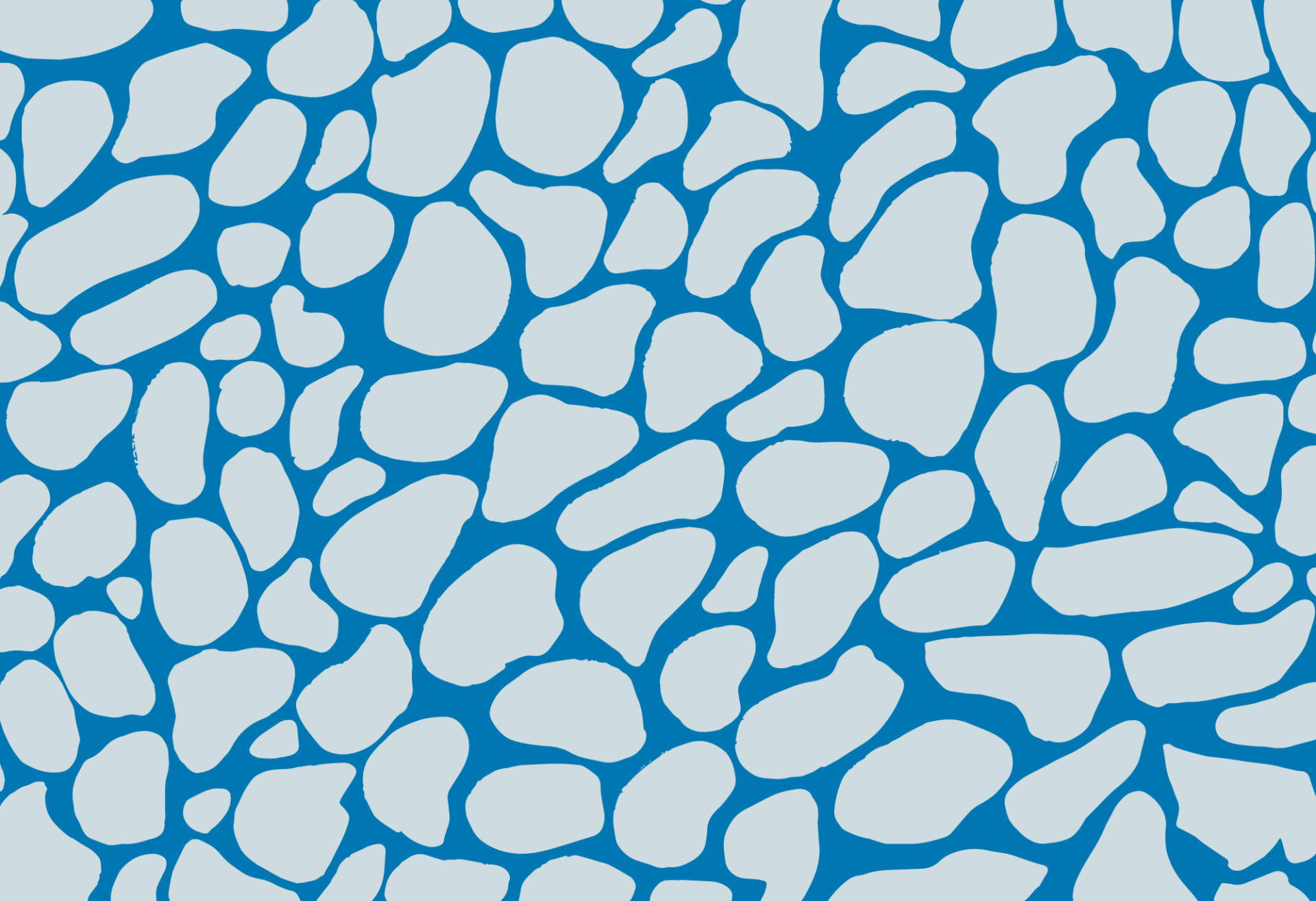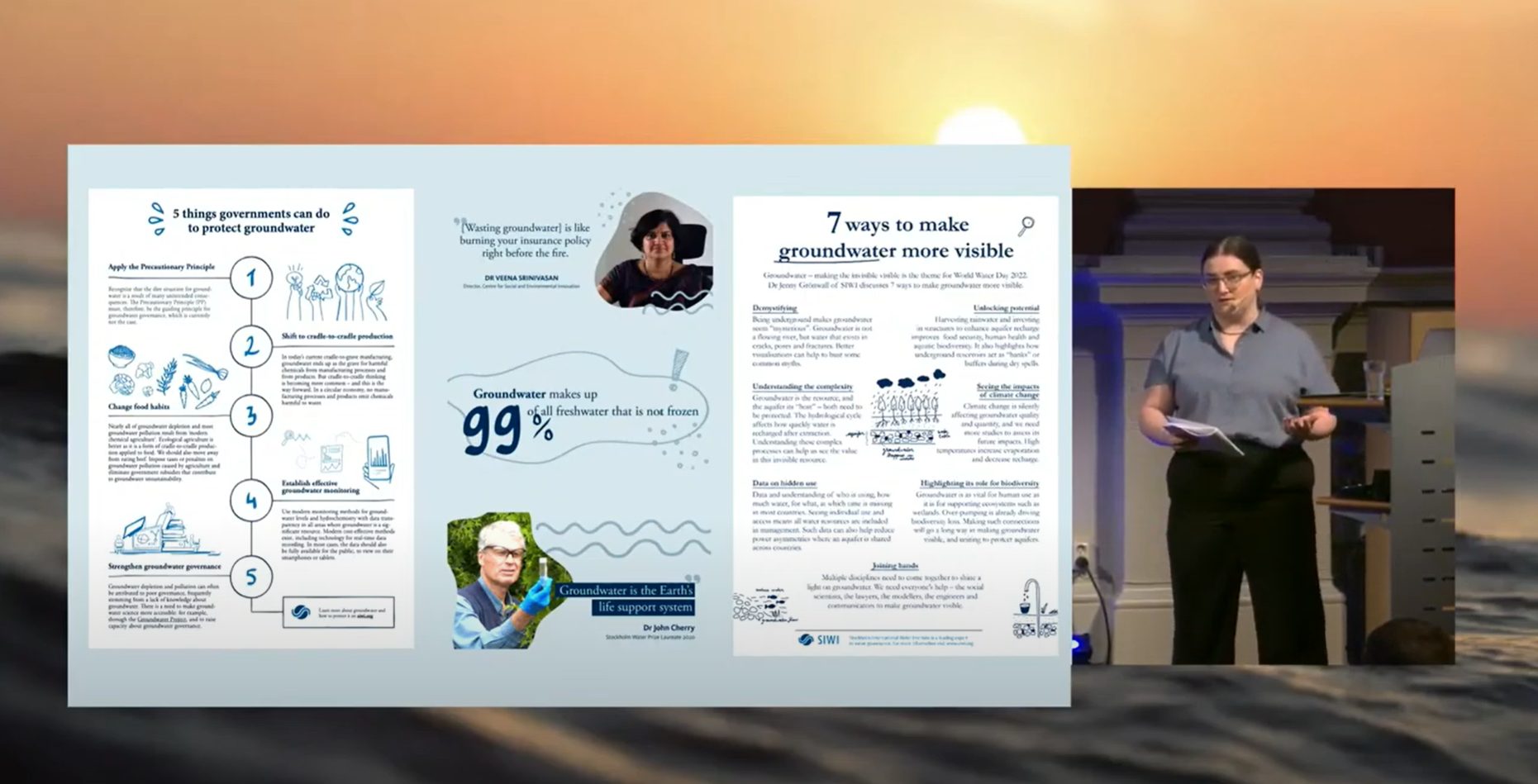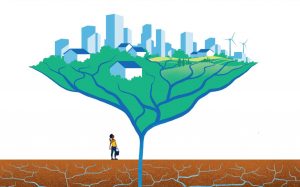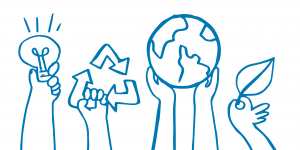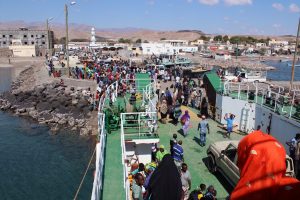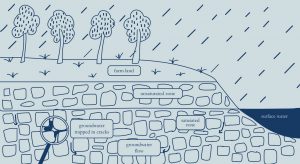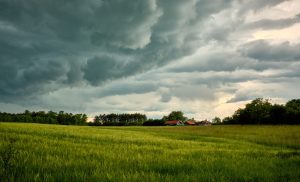Communication and collaboration to protect groundwater
How do we make groundwater visible?
At SIWI we asked ourselves the question: how do we make groundwater visible? How do we talk about groundwater? We have been running a campaign in our own channels about groundwater in recent weeks and noticed two things – there is both a need and a demand for content about groundwater. Specifically, content that aims to make visible, explain or draw attention to groundwater.
We created a one-pager that clearly summarizes 7 ways to make groundwater visible and that calls for cooperation between e.g. communicators and experts in various subjects. Sydvatten’s Sandra Nordström shared their campaign on exactly that, getting people to work together across disciplines and municipalities reflecting how groundwater is a shared resource.
A sentiment echoed by Kenneth M Persson, Sydvatten who encouraged municipalities to invite neighbouring municipalities, industries and citizens to take part in projects to the benefit of both the projects and participants.
Groundwater is complex, in geological and hydrological terms. SGU’s Eva Wendelin brought a 3D-model of an aquifer with her, demonstrating that there are pedagogical ways to get around these obstacles. We have to ask ourselves does it need to be that difficult? To start with at least? There are lots of entry points to the subject of groundwater and we should invest in finding as many as we can to draw in as many as possible. We need everyone to be involved in protecting groundwater. In addition, there are people, with plenty of knowledge of groundwater and its usage, who do not see themselves as either geologists nor hydrologists.
Their knowledge and experience can be crucial to sustainable water management – this is why we must find a way to involve everyone in the issue. This was raised by Viviana Re, University of Pisa, who pushes for an interdisciplinary socio-hydrogeology approach and shared her own experience of realizing the lack of integration between the study of groundwater and social sciences.
Ensuring inclusivity
One way SIWI works to ensure inclusive processes is through our cross-cutting issues; three issues that should permeate all our processes – gender equality, a human rights based approach and youth empowerment. We work with these issues to be able to ensure inclusive processes from start to finish both to ensure sustainable long-term solutions but also to maintain one’s right to participate in processes that concerns oneself.
As the focal point for the youth empowerment (concerning individuals up to 35 years old), I want to highlight just that. As mentioned, we need to get everyone involved. The climate crisis issue concerns everyone, but especially younger people who see the climate issue as a major fate issue, with concepts such as climate anxiety becoming more and more common. It would be a mistake that we can not afford nor have time for, to not work with such committed people.
“Young people are both water users and suppliers. Their knowledge and experience is crucial to good water governance.”
Young people are both water users but suppliers – either through their profession as anything from plumbers to decision makers or because the responsibility to fetch water usually falls on the younger members of a household. Those who fetch water have unique insights, such as exactly how much water is used, as well as a great understanding of the challenges and what can be improved without compromising anything else.
At the same time, there is often a knowledge gap between how one’s own water use affects groundwater and more importantly how today’s use can impact tomorrow’s availability of groundwater. Considering how many households, around 1.2 million, in Sweden alone depend on self-supply access to groundwater through e.g. a well, there is a huge opportunity to educate those who access groundwater outside of formal infrastructures on how groundwater works.
Everyone needs to be involved
It bears repeating that we need everyone to be involved – water users but also more who work with this issue. We need to attract young people to groundwater, which you can work with in a number of different ways.
Do you want to work with development? You can work with groundwater. If you want to research biodiversity, you can research groundwater’s connections to wetlands. Do you want to work on lifting communities and societies out of poverty? Then you can, and should, work with groundwater.
We need groundwater champions in research, communication, industry, agriculture, policymaking and much more.
We heard during the seminar that groundwater concerns the most fundamental aspects of humanity: poverty, hunger, security, sustainability, equality and ultimately our survival. We must see groundwater before there is nothing left to see. We can do this, together, by highlighting groundwater in contexts like yesterday’s seminar, by educating and engaging people in the issue, by working across disciplines, sectors and borders, and by showing how groundwater affects us all meaning we all have a role to play in protecting it.
Get to know Groundwater
Groundwater has been out of sight and out of mind for too long. When we protect groundwater we save lives and ecosystems, improve health, reduce hunger and tackle climate change all at once.
Learn more